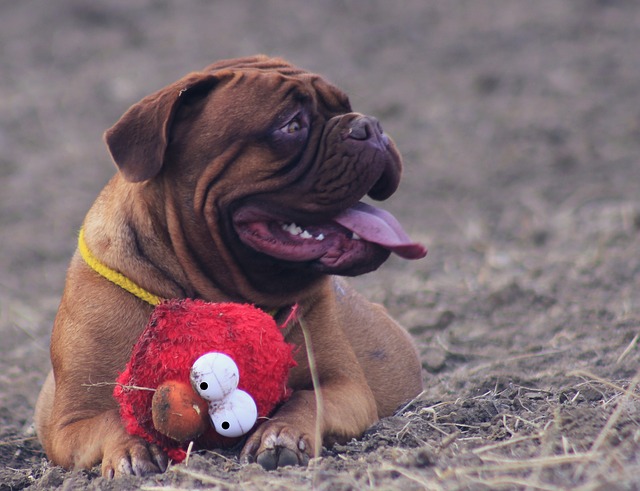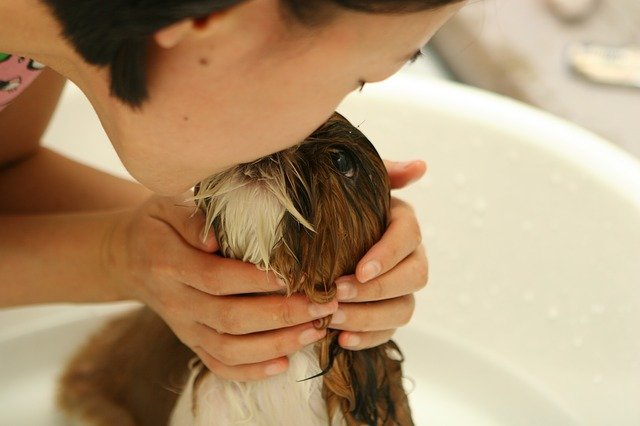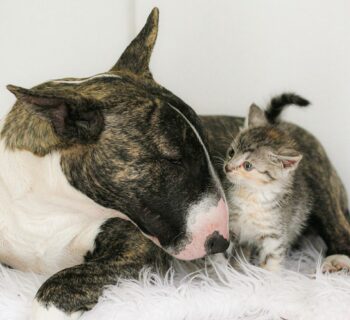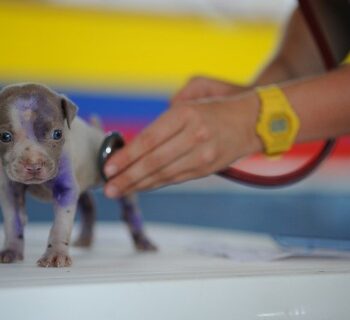So your canine likes peanut butter, and you are wondering why. You are not alone. At one point or the other, many pet owners have wondered what it is about peanut butter that seems to make it one of the most favored treats of their canine fur babies.
So, why do dogs like peanut butter? Is there a reason for this fondness? We'll find out in this article. Here, we'll discuss some of the reasons canines are crazy about peanut butter, the myths, facts, precautions to keep in mind with dogs and peanut butter, and how to feed your pet this tasty treat. We'll also talk about other details you may find helpful. Read on!
Table of Contents
Dogs and Peanut Butter
Myths
Myth 1: Salt
Many believe dogs enjoy peanut butter strictly for the salt content. What they may not realize, though, is that a significant part of our pooches’ diet is made up of meat. And meat, while bland to us, contains enough salt for dogs. Also, commercially-made canine foods usually have plenty of salt, so if they need the sodium, they more than get it from these other sources.
Myth 2: Fat
Peanut butter contains lots of fats, and as dogs have fat-specific taste buds, they can appreciate the fat just as much or even better than we do. However, this appeal seems to apply only to fats from meat, not plants (peanuts). Besides, if it were the fats, there are countless other fat-filled foods not particularly favored by dogs, mostly because digesting those can be challenging.
Myth 3: Sugar
Dogs have a sweet tooth, but it cannot be claimed to be the main reason they enjoy peanut butter as they also like the natural, no sugar added peanut butter. Also, the furaneol taste buds are mainly on the tip of the dog’s tongue, and peanut butter would not touch the area as much unless they are eating it out of a specially-designed toy that fits just into that part of the tongue.
Facts
Fact: The protein
Could it be the protein? Peanut butter is protein-packed, which is probably why it is a favorite for dogs. But is it?
Even though many canine owners believe that excessive protein consumption might be harmful to their dog’s health and cause problems such as joint degeneration and kidney damage, the anti-protein claims have been found to be untrue as dogs, especially growing ones, need high amounts of protein to fuel and maintain their growth. They also need it to keep healthy fur, skin, and immune health. So, as long as the dog’s kidneys are in good condition, eliminating excess protein shouldn’t be a problem at all.
Because of the concerns mentioned above, many dog foods are low in protein, and as such, they instinctively look for protein elsewhere when deficient in it. What’s more, unlike most herbivorous types of protein that may be harder for your dog to digest, peanut butter is easily digested.
Fact: because their owners like it
Our canines often want the things we eat. Remember, to them we are the leaders of the "pack.” And because they are not always allowed to eat the same food as us, they are more than eager to enjoy the ones given freely. Peanut butter is one of the few freely-shared items, and as expected, our dogs are excited when they see us opening a jar of peanut butter.
Things To Bear in Mind
Check the label
You want to share your peanut butter with your dog, but check the label before you do so. Some peanut butter brands are made with xylitol, a sweetener and a potentially harmful ingredient for canines. Both regular and occasional consumption of xylitol may cause hypoglycemia and hepatic necrosis. Opt for peanut butter with no xylitol. Your dog will enjoy it just as much as they would one with the sweetener.
Opt for organic butter
If you can, buy only organic and additive-free peanut butter. You want butter that is free of all kinds of sugar, flavoring, or coloring. If your dog has to enjoy the snack with you, you want to make sure that it is simple, clean, and free of harmful ingredients. If possible, buy your peanut butter from a known brand. This way, you can be confident that the product you feed to your pup is safe, free of harmful additives, and beneficial health-wise.
Don’t feed it excessively
With peanut butter, you want to be careful with the quantity your pooch consumes. Peanut butter should only be used as a treat, and even then, canine owners have to remember that it is still a calorie-packed treat. A general rule from many pet experts is that the total treats your dog consumes daily should be less than 10 percent of its daily calorie requirements.
Pet experts also recommend keeping it at less than a teaspoon a day with peanut butter treats for large, high-energy dogs. Small dogs, however, can have around one-eighth of a teaspoon.
The presence of Aflatoxins: a carcinogen
Aflatoxins are naturally-occurring mycotoxins produced by the fungus Aspergillus. They are present in peanuts and some other nuts and seeds and are equally known to be among the most carcinogenic substances in food. In the liver, they can be just as destructive, and they have been shown to cause liver cancer in laboratory animals.
Glyphosate in peanut butter
GMO crop farmers usually spray their crops with herbicides such as Roundup to prevent weeds. However, they may also use herbicides for the following reasons a few days or weeks before harvest in order to;
- Produce a larger yield
- Quicken the harvest
- Make it easier for machines to harvest crops without straining them
- Make earlier replanting possible
While the herbicides help farmers in those areas, the crops are contaminated with glyphosate, the active ingredient in many similar herbicides. In a study, exposure to the ingredient was shown to increase cancer risk by over forty percent. It is even worse because many crops are sprayed with glyphosate before harvest, and the crop absorbs it. And like most chemical contaminants, it cannot be washed off.
Peanuts are one of the many crops sprayed right before harvest. A recent test of a popular peanut butter brand showed that it contained some quantity of glyphosate. You want to keep all of these in mind as you consider feeding your dog peanut butter.
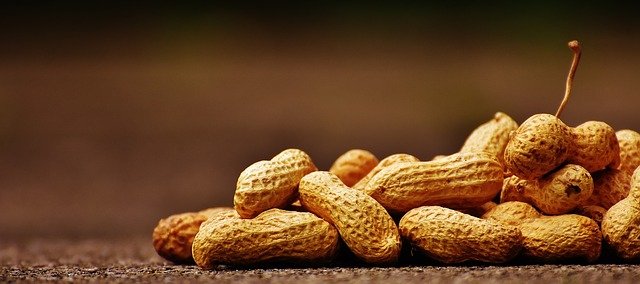
Can Canines Be Allergic to Peanuts?
While it is possible that, just like some humans, some canines can be allergic to peanuts, there have been no documented cases of similar allergies to peanuts in dogs. In fact, there has been no report of canine allergy to any other seed or nut. However, this does not entirely rule out the possibility of it happening.
If you have concerns about your dog being allergic to peanuts when giving it some for the first time, allow it to consume a very small amount. Some quantity on the tip of your finger will do, and watch the dog closely for a couple of hours.
If you do not observe any of the following signs, you can continue feeding it the butter as an occasional treat.
- Rapid breathing/difficulty breathing
- Small areas of swelling or hives on the body
- Diarrhea
- Collapse
- Vomiting
- Lethargy
- Itchiness
- Thin fur coat
- Chronic ear infections
- Paw chewing or severe itchiness
- Impacted anal glands
Why Do Dogs Like Peanut Butter? Conclusion
Dogs like peanut butter for several reasons, and we discussed them above. Among the top reasons was the fact that they simply enjoy peanut butter because we do. However, as with all foods made for humans, you want to be careful with feeding it to your dog. While it has not been reported to cause allergy in dogs, you should still look out for common allergy signs and stop giving it to your dog if you suspect that it may be allergic to it.
Also, keep in mind some of the downsides to feeding your dog peanut butter that we mentioned. If you must feed some peanut butter regardless of the possible long-term side effects, only give it organic products and in small amounts and as an occasional treat.
There are also a number of peanut butter formulated just for canines. These are usually made to be totally safe for canine consumption, free of additives and fillers, and typically affordable. This way, you will not have to worry about some of the common potentially harmful additives in regular peanut butter.
About the Author
Kirsten Heggarty
Kirsten created The Pet Handbook with the aim of sharing her knowledge about pets, pet food, healthy habits, and more. All of her advice is based on years of her own experience with her pets, and feedback that she has received from grateful readers about her tips. If you want to know more please read the About Me page.


